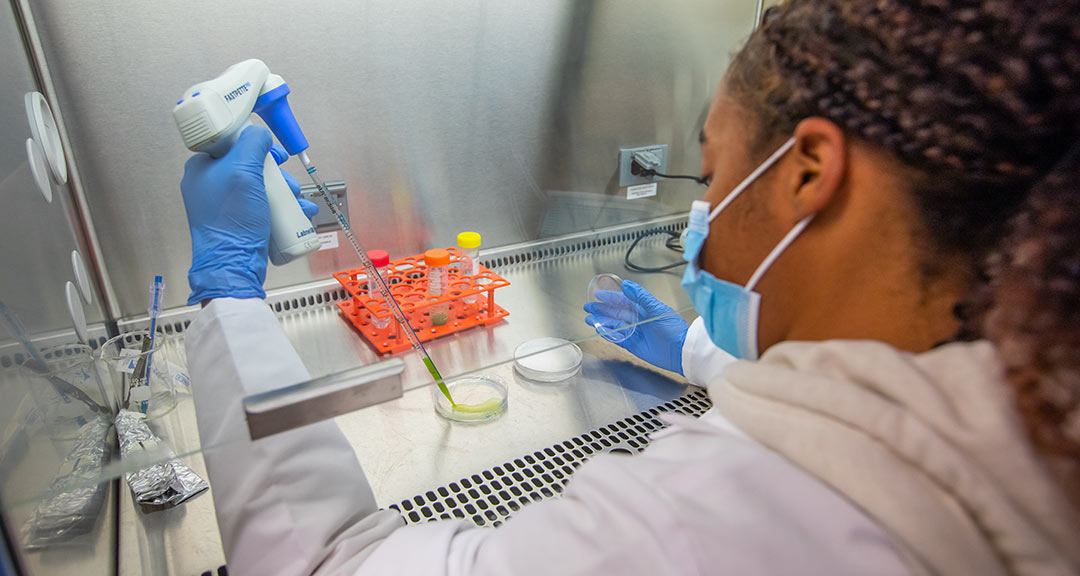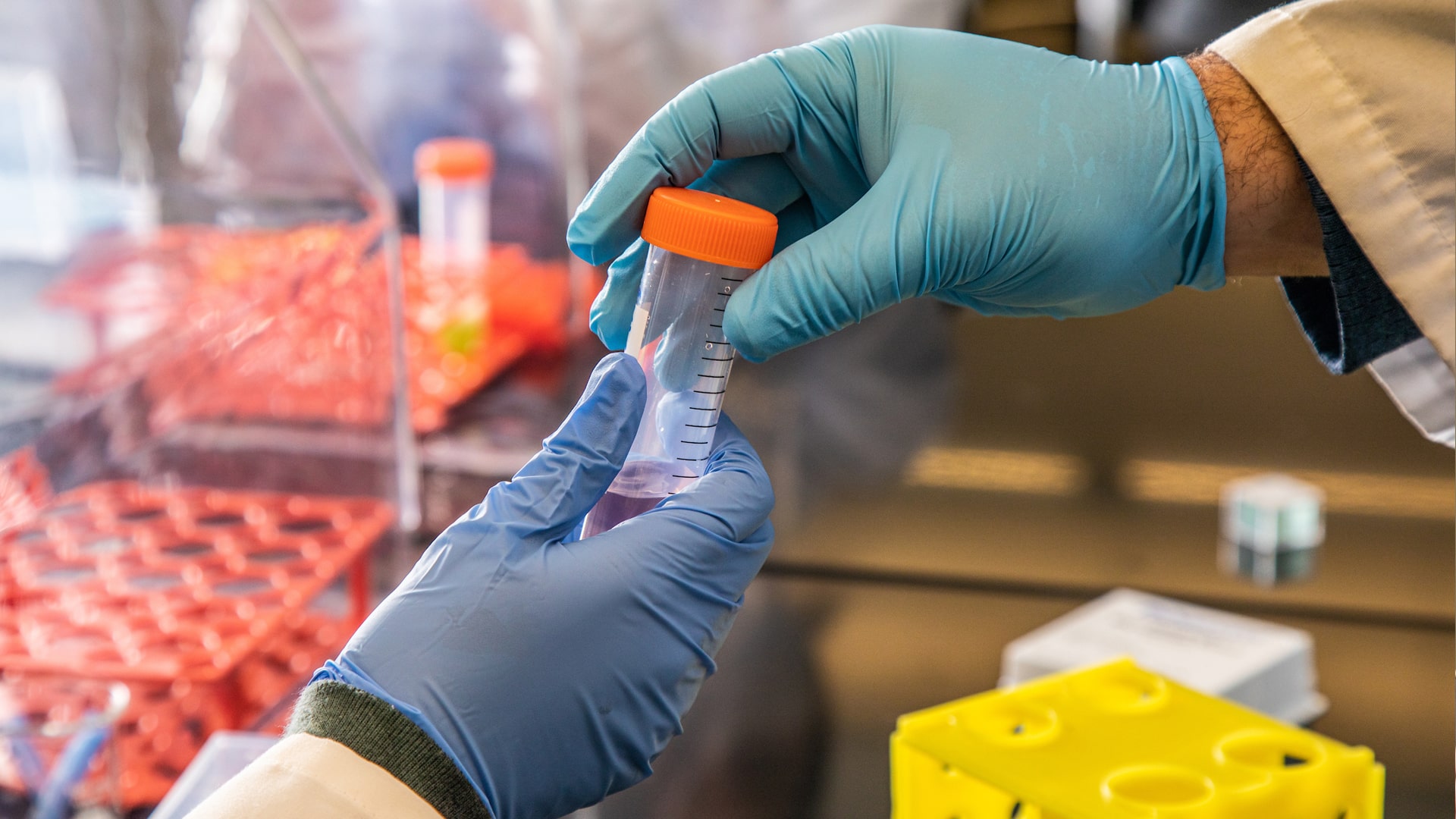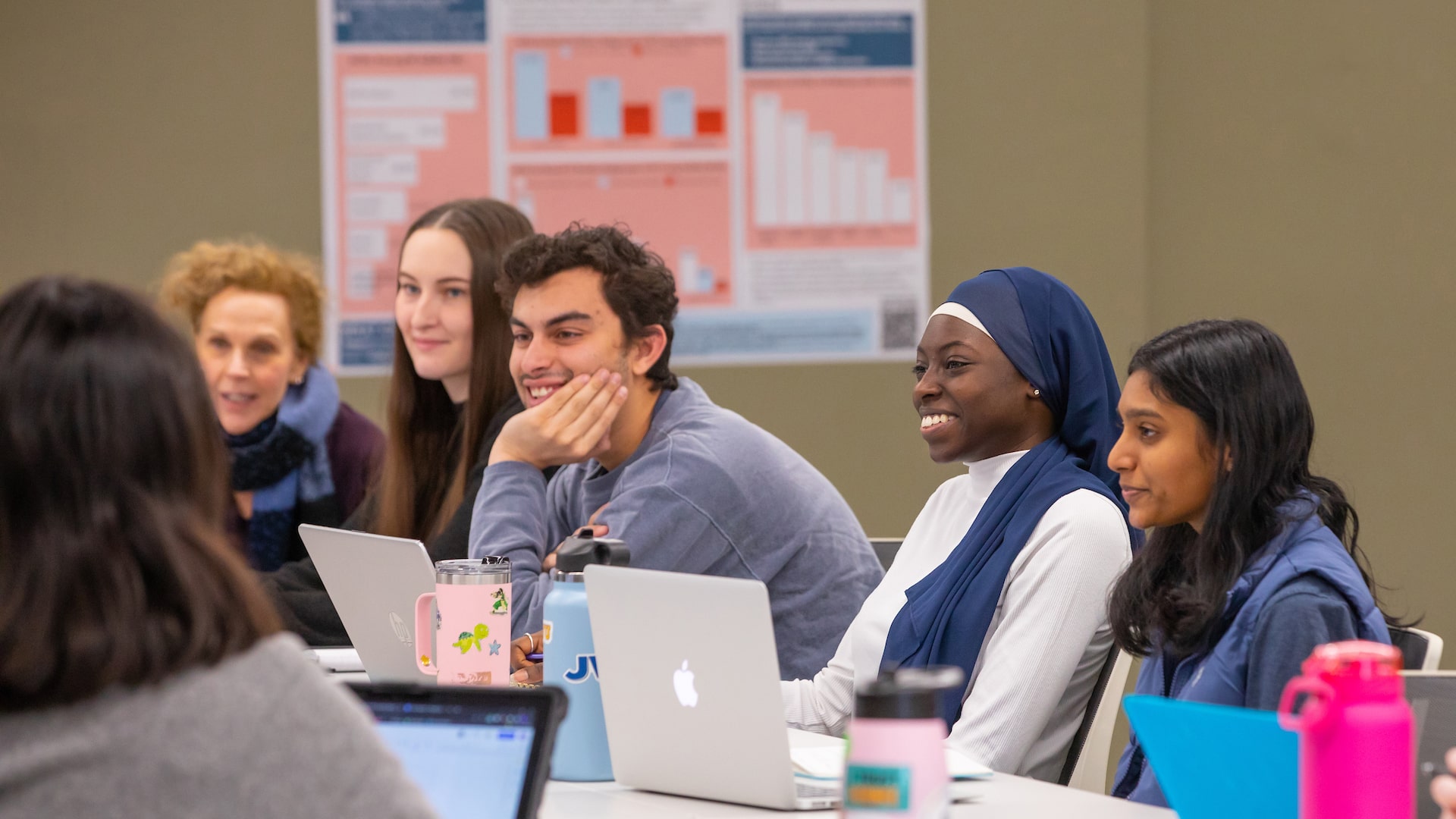Studying Plant-Pathogen Interactions to Improve Crop-Disease Resistance
Three Biology students — Alex Pedroza '23, Kimberly Sacaza '23, and Christine Wong '23 — led by Christos Dimos, Ph.D., explore plant-pathogen interactions in moss. This research could help develop disease-resistant crops that are less dependent on toxic chemicals.
Student POV
“It was great hands-on experience and also great to be trusted enough by your instructor that you can do it on your own. I learned a lot of independent skills, but I always felt comfortable enough that if I was confused I could be open enough to ask questions.” — Sacaza

As part of her research, Sacaza studied the cell growth of Physcomitrella patens.
Research Summary
Starting in the fall 2021, Dimos worked with three undergraduate students to find out why a certain bacterial plant-pathogen Pectobacterium carotovorum subsp. carotovorum was infecting and causing diseases in the moss Physcomitrella patens.
Learning more about these cells could help with sustainability: If crop plants’ defensive genes could be engineered to use less water, grow shorter or meet other conditions, then people could be more efficiently fed.
The research extended into the spring semester and taught students valuable skills such as problem-solving, scientific study and research and hands-on work.

